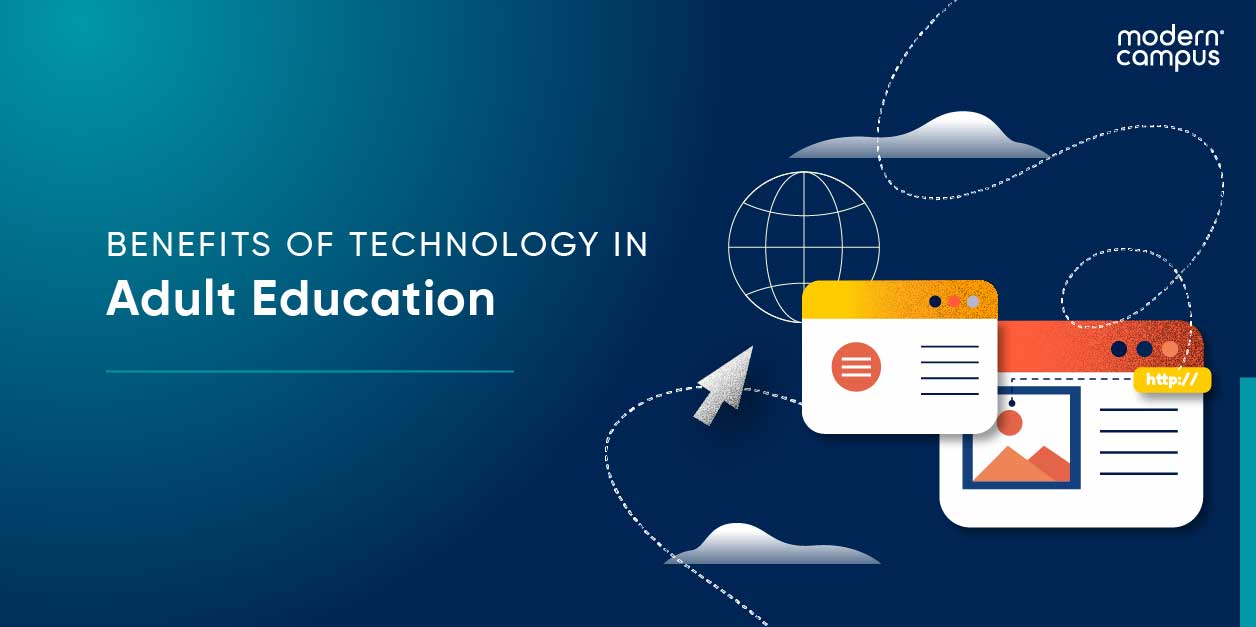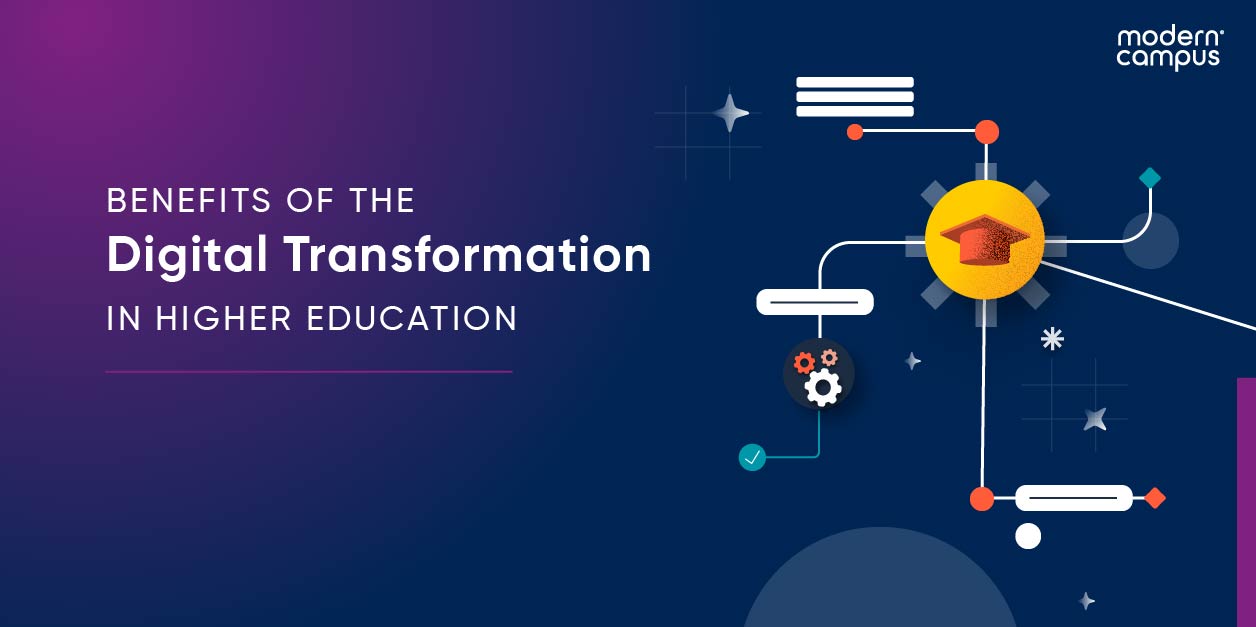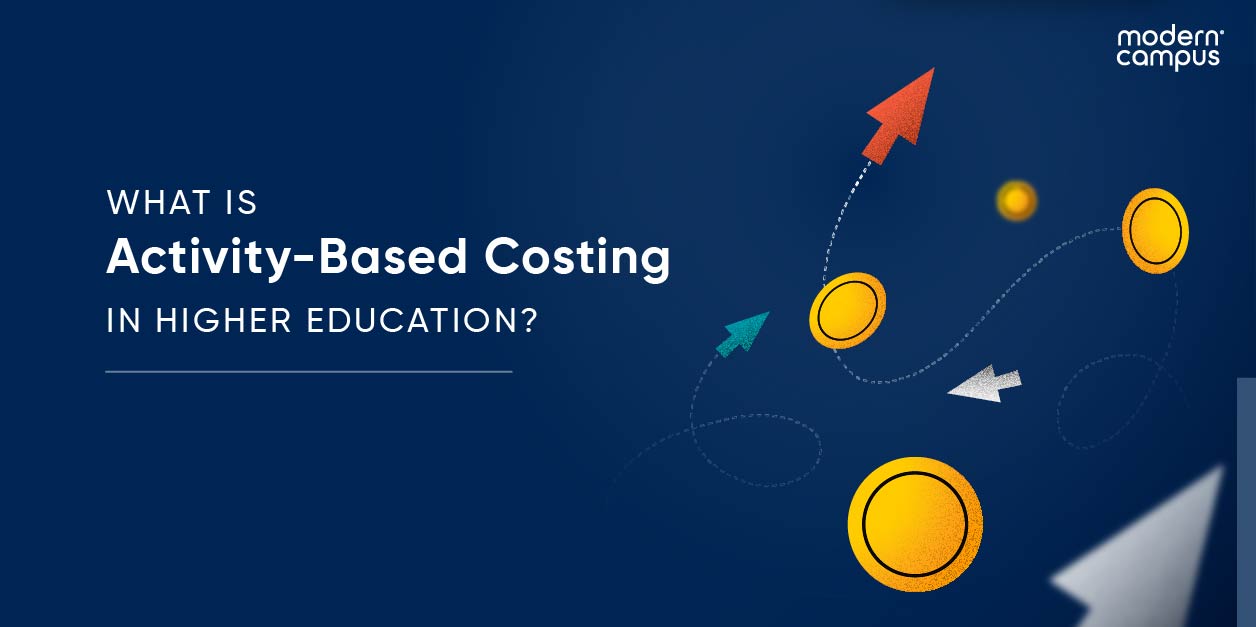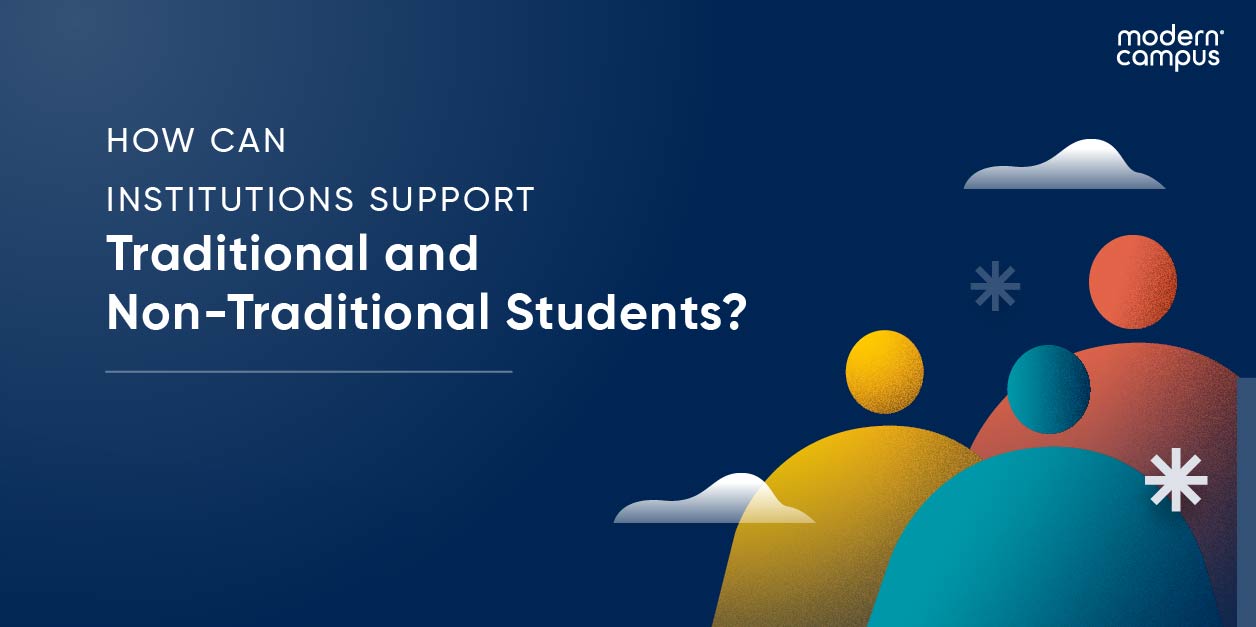Supporting Non-Traditional Learners Through Technology
Navigating higher education can pose challenges for non-traditional learners, who must navigate systems that inadequately address their distinctive needs. Learners enrolled in continued education programs, single classes, and workplace development courses often encounter barriers when navigating existing technological systems—especially ones that are designed with degree-seeking undergraduate students in mind.
At Modern Campus, we understand the pressing need for technology platforms tailored explicitly for non-traditional learners. Below, we’ll explore the best ways to eliminate barriers and pave clearer paths for all learners to succeed within your non-traditional programs and courses.
The Benefits of Technology
By enhancing accessibility and flexibility, technology has opened up higher education to more students, expanding the potential number of non-traditional students who can enroll every year. Non-traditional learners—who often juggle work, family, and other responsibilities—can now access educational resources anytime, anywhere, breaking free from the confines of a traditional classroom setting.
Additionally, technology facilitates personalized learning paths, tailoring educational experiences to match each person’s unique strengths and weaknesses. This personalized touch not only fosters a more engaging learning environment but also ensures that the educational journey aligns with the specific needs and goals of each learner.
Technology also enables the real-world application of knowledge, bringing theoretical concepts to life in practical scenarios. This bridging of theory and practice equips non-traditional students with immediately applicable skills and insights, enhancing the overall value of their education and preparing them for success in their professional endeavors. In essence, technology serves as a powerful ally, providing accessibility, flexibility, personalization, and real-world relevance.
The Challenges of Implementing Technology in Adult Education
Implementing technology in adult education, particularly for non-traditional students, poses a set of distinctive challenges. One notable hurdle is the varying levels of tech literacy among this diverse group. Non-traditional students come from all walks of life, spanning various ages and backgrounds, and they might not all be equally familiar with high-tech tools. Bridging this gap requires targeted efforts to provide comprehensive tech education and support.
Another challenge lies in overcoming resistance to change, as some adult learners may be accustomed to traditional educational methods and find the shift to technology-driven learning daunting. Additionally, the need for a substantial initial investment in technology infrastructure can be a barrier, especially for institutions with limited resources.
Balancing the integration of technology with the preservation of a supportive and engaging learning environment is crucial, as overreliance on digital tools may inadvertently hinder the personalized and interactive aspects of adult education. Successfully implementing technology for non-traditional students necessitates a thoughtful approach that addresses these challenges.
Types of Technology Used
Technology has emerged as a pivotal force in dismantling barriers and fostering inclusivity for all learners. While technology often originates with the masses in mind, the current landscape calls for a more nuanced approach, one that recognizes and resolves the specific hurdles faced by non-traditional students.
This need inspired Modern Campus to create our one-stop-shop non-traditional student management solutions. These platforms empower nearly 400 institutions with the essential infrastructure to guide prospective students seamlessly through the educational funnel, navigating from course registration to their dedicated e-learning environment. The results: non-traditional programs provide personalized learning paths and practical applications of knowledge, complemented by a robust technological infrastructure tailored to the unique learner requirements.
Exploring Future Trends
Non-traditional education is evolving rapidly, with several exciting trends on the horizon. Artificial intelligence is poised to play a pivotal role, enabling the creation of more personalized learning experiences. AI algorithms can analyze individual adult learning patterns and preferences, tailoring educational content to match the unique needs of each non-traditional learner.
Virtual reality is another groundbreaking trend, offering immersive learning experiences that go beyond traditional classroom settings. Non-traditional students can engage in lifelike simulations and hands-on training, enhancing the practical application of knowledge.
Additionally, the rise of augmented reality is transforming how information is presented, creating interactive and dynamic learning environments. Gamification, micro-learning, and mobile learning are also gaining prominence, providing flexible and engaging educational formats that align with the busy schedules of non-traditional learners.
Collectively, these trends signify a shift towards more adaptive, interactive, and accessible non-traditional education, harnessing the power of cutting-edge technologies to meet the evolving needs of lifelong learners.
Why Your Non-Traditional Division Needs to Prioritize Its System
Last updated: January 5, 2024




